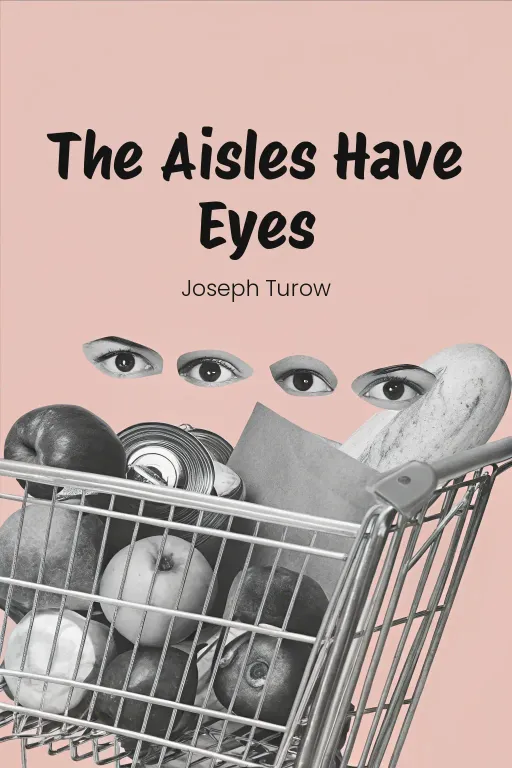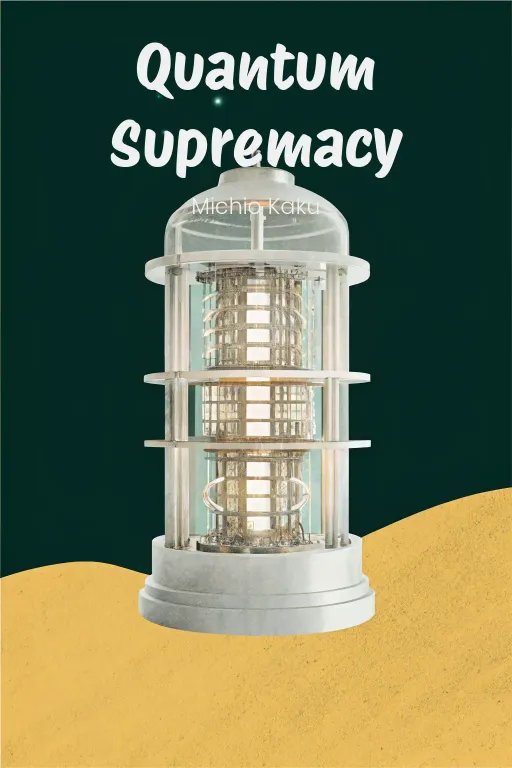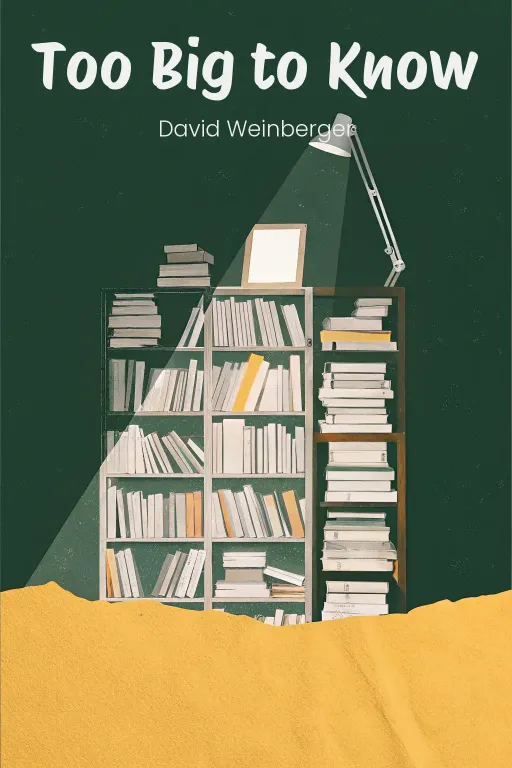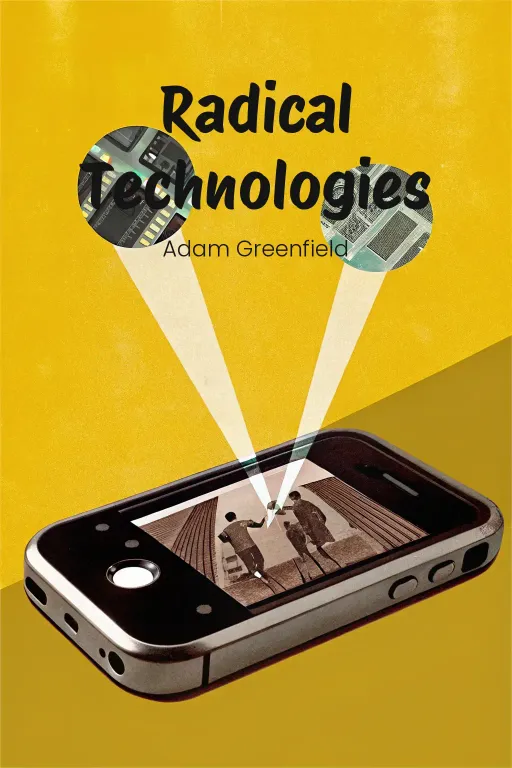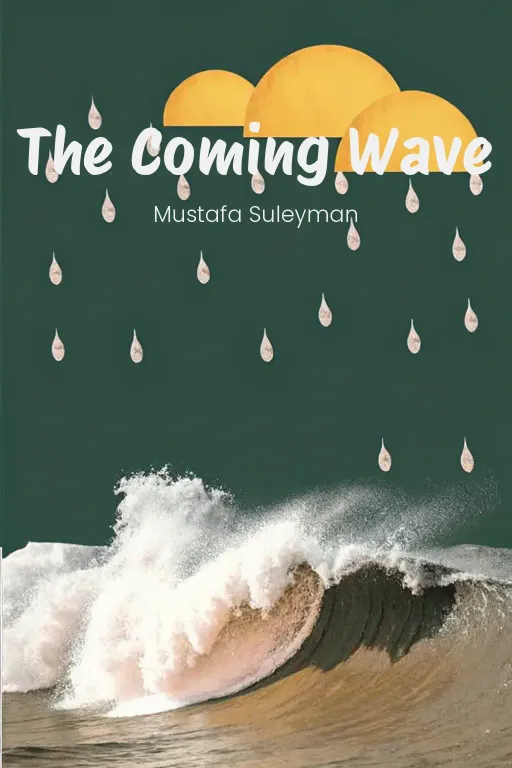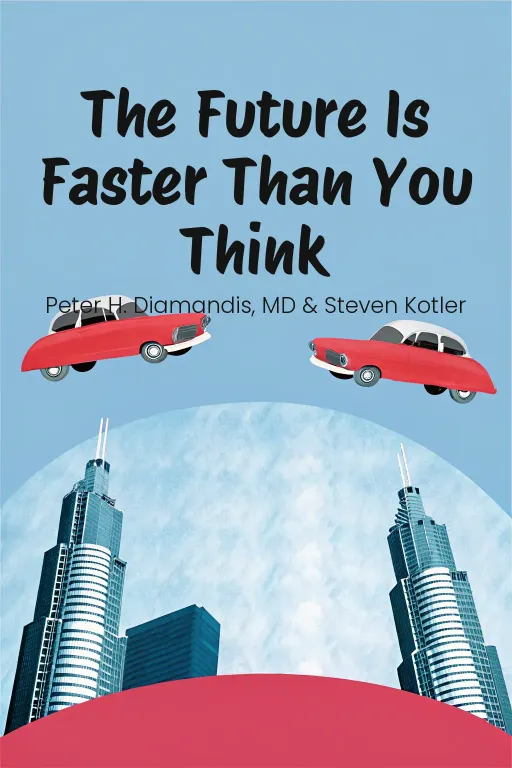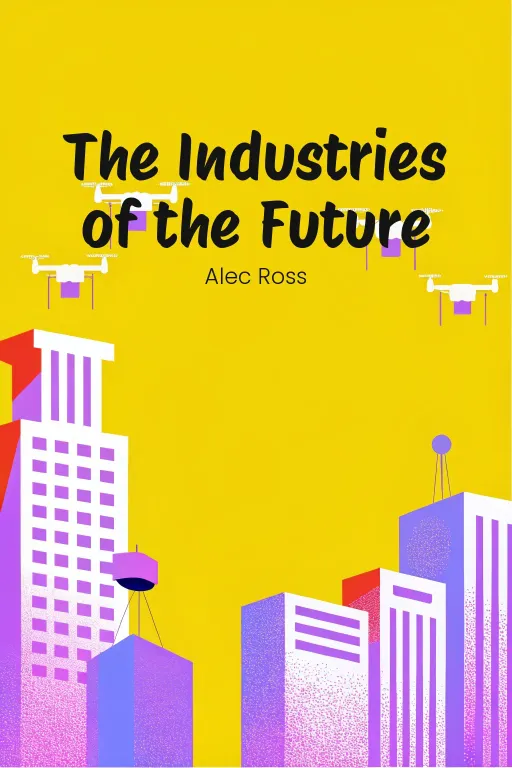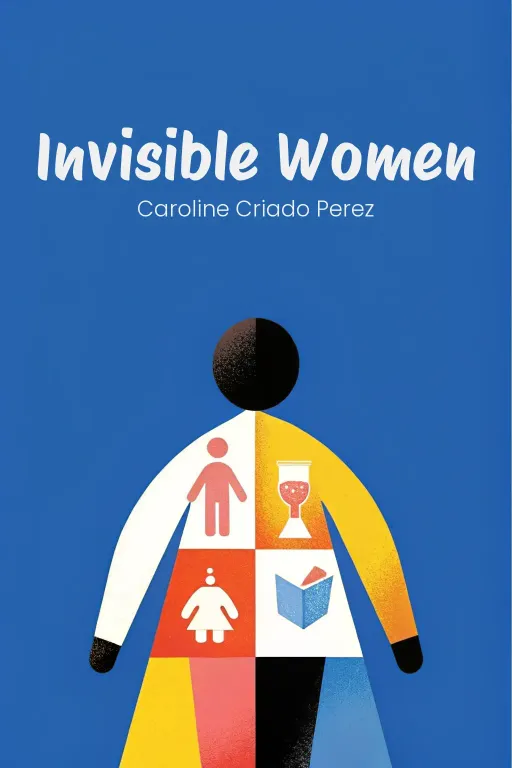
Be a Great Ancestor: Build Your Legacy
Podcast by Wired In with Josh and Drew
Becoming the Great Ancestors Our Future Needs - an Antidote for Short-Termism
Be a Great Ancestor: Build Your Legacy
Part 1
Josh: Hey everyone, welcome! Ever stop to think about how your actions today might affect people centuries from now? You know, people who won't even know you existed? Drew: Huh, that's a thought. Like, are we talking about building pyramids here? Or is it more about just, you know, not screwing things up too badly for the future generations? Josh: Precisely! That's where the idea of "Longpath" comes in. It's about moving beyond that short-term, what's-in-it-for-me thinking. It challenges us to become, as the author puts it, "great ancestors." Drew: "Great ancestors"? Bit much, isn't it? So, what, are we talking about some kind of self-help guide to immortality or something? Josh: Not exactly immortal, but in a way, yes! The idea is that when we focus on the long-term impact, not just quick profits or instant gratification, we can actually create real, lasting change. We're talking healthier communities and maybe even a shift in our whole culture – big ideas, but also small, everyday things we can do. Drew: Okay, Josh, big ideas are great and all, but how does that translate into something real? Something I can actually do? Josh: That’s what we're going to dissect today. We’ll break down the core reasons why we need this Longpath mindset, give you some practical tools to weave it into your daily routine, and look at how it can help us tackle global issues while shaping our own legacies. Drew: Planting trees and solving climate change all in one podcast? Ambitious! I'm always a little skeptical of grand ideas. Let's see if "Longpath" holds up under a little real-world pressure today. Josh: Exactly! And that’s what’s so exciting about it! I can't wait to dig in!
The Concept and Importance of Longpath Thinking
Part 2
Josh: Okay, picking up from where we left off, let’s “really” dive into the core of Longpath thinking: the 'why' behind it all. Basically, why should we even bother caring about the future beyond our own lives? Drew: Exactly! Because, let’s be honest, humans are pretty focused on right now. We want instant results, we’re glued to our phones... most people barely remember to bring reusable bags to the grocery store. So, why should we adopt this long-term view? What's so important about it? Josh: Well, that's the central conflict of Longpath, isn't it? Our natural instincts and what the future actually needs from us are often at odds. Think about it: evolution wired our brains to focus on immediate survival. Our ancestors were more concerned with finding food for the day, not planning for ten years down the line. Drew: Right, because you wouldn't be worrying about stocking up on supplies if you have some predator lurking nearby. Josh: Precisely! But in today's world, where we have plenty of resources, not to mention huge challenges like climate change, that short-sighted mindset is holding us back. Longpath highlights this. We're stuck in short-termism – prioritizing immediate gratification over sustainable, future-focused actions. Drew: And that short-termism is everywhere, isn't it? Companies focusing on quarterly profits instead of long-term sustainability. Schools obsessing over test scores, overshadowing actual, lifelong learning. Josh: Exactly, and it contributes to what some call “presentism," a kind of cultural addiction to the present. David Rushkoff has a great example: digital clocks versus analog clocks. Digital clocks just show you the time right now, disconnected from the past or future. But analog clocks show time as a continuous flow, connecting what happened to what’s coming. Longpath wants us to switch from that digital mindset to an analog one. Drew: Okay, I get why this is important in theory, but how does Longpath actually change how we think about our place in time? Josh: In two key ways. First, it encourages transgenerational empathy, and second, it embraces futures thinking. Transgenerational empathy is about seeing yourself as part of a much larger story – benefiting from the sacrifices of those before you and building a foundation for those who come after. Drew: Okay… empathy for people who aren't even born yet? Isn't that a little...out there? Josh: It’s actually more practical than it sounds. Think about the Talmud story about Choni and the carob tree. Choni plants a tree that won't bear fruit in his lifetime, simply because future generations will need it. That story “really” captures the essence of Longpath: making small, deliberate choices today, knowing they'll create effects across time, even if you don’t see the results yourself. Drew: I like that story, it's simple but meaningful. But in the real world, planting trees is one thing. Making big changes, like tackling the climate crisis, requires so much more. You mentioned futures thinking – how does that fit in? Josh: Futures thinking is about imagining multiple possibilities instead of assuming there's only one way the future will unfold. A classic example is the Iroquois Confederacy’s seven-generation principle. When leaders made decisions, they didn't just ask, "Does this help us now?" They asked, "How will this affect people seven generations from now?" That’s true accountability and foresight. Drew: Seven generations is... what, like two hundred years? Could you imagine asking a politician today to think about the year 2223 when making decisions? Josh: It's ambitious, but it’s not unrealistic. Indigenous communities used these ideas for centuries, and some modern governments are trying them out. New Zealand, for example, has a "Wellbeing Budget" that focuses on long-term quality of life, not just short-term economic growth. It's about integrating that wider perspective into policy. Drew: I see the potential, but do you “really” think people are willing to change their lives for benefits they won’t see? I mean, social media is designed for instant gratification. Who's going to wait decades for a payoff when they can get likes in seconds? Josh: That's a big challenge that Longpath recognizes: breaking free from those dopamine loops that keep us focused on the present. It’s a cultural shift, not a quick fix. It begins with each of us reframing our actions. Even small choices can have a big impact. Drew: Like what? Give me an example before I start thinking we all need to live off-grid. Josh: Simple acts done with intention. Take disciplining your child. Instead of reacting emotionally, you pause and think about the long-term impact your response will have on their values. It might seem small, but being patient teaches them respect and resilience—qualities that will later influence how they parent. Drew: Okay, I get that with personal choices. But it's harder to apply that to business or technology. How do you scale this kind of thinking professionally or on a larger scale? Josh: That’s where creating what the book calls a "tapestry of time" comes in. You start by recognizing that every decision fits into a bigger story, connecting businesses, governments, individuals, and the environment. Take urban planning: the idea of the 15-minute city—designing neighborhoods where you can access everything you need within 15 minutes—is a great example. It favors local sustainability over car-dependent urban sprawl. Drew: Thoughtful urban planning, long-term parenting, planting carob trees… You make this sound like a hero’s journey. But let’s face it, we’re complicated. What happens when life gets chaotic, when those survival instincts kick in? Josh: That’s a crucial test of Longpath. The book calls them “intertidal periods,” when societies are caught between the old and the new. These times can be uncertain and overwhelming, but they’re perfect for embracing long-term thinking. It’s about slowing down, resisting quick reactions, and choosing solutions that build towards a sustainable future for all. Drew: So, instead of just reacting, Longpath wants us to step back, connect today's problems with tomorrow's solutions? Josh: Exactly! And that’s what makes it so powerful. It’s not about being perfect right now – it’s about leaving the world in a better state than we found it.
Frameworks and Practical Tools for Longpath Thinking
Part 3
Josh: So, now that we’ve defined Longpath and why it matters, let’s dive into the frameworks that actually make it happen. This is the “how-to” part, moving beyond just theory. We’re talking about things like transgenerational empathy and futures thinking, as well as practical tools: reflective practices, collaborative storytelling, and community-building. These are “really” the engines that drive the Longpath philosophy. Drew: Okay, finally, the real tools! I mean, the philosophy is interesting, but I need to see how this stuff works in practice. You can’t just tell people to care about the year 2200 and expect results. So, where do we start? Transgenerational empathy – what is it, and how does it help me think in centuries instead of seconds? Josh: Transgenerational empathy, at its heart, is about understanding that we're all part of a continuous timeline. Our actions are shaped by those who came before us, and, yep, they’ll impact generations to come. It challenges us to see our choices as pieces of a much bigger picture. For instance, the Iroquois Confederacy had this amazing seven-generation principle. Their leaders had to consider how every major decision would affect people seven generations into the future. Drew: Seven generations... that’s roughly two hundred years, right? I can barely plan for next year. How do you even begin to make that kind of long-term thinking a reality? Josh: It “really” comes down to reframing the question. Instead of "What’s best for me right now?", we ask, "What’s best for the community in the long run?” The Iroquois considered the impact of their policies not just on their immediate society but also on the environment, culture, and the overall well-being of the land and people far, far ahead. Drew: Okay, sounds great in theory, but give me a real-world example. If I’m just sitting in my living room today, what does transgenerational empathy look like in my daily life? Josh: Good question. Think about a family that decides to adopt eco-friendly habits – switching to solar panels, eating less meat. It’s not just about saving money or following a trend. They’re teaching their kids about sustainability, showing them that their choices have an impact. Those kids then carry those values forward, and that's how you create a ripple effect over time. Small changes add up. Drew: Ripple effect, yeah. That’s the right way to think about it. It’s easier to relate to big ideas when you break them down into small actions. But some people might still think, "Why should I care if I won’t see the results?" Josh: And that’s a totally valid question. That's where the idea of being part of a continuum is so important – you know, recognizing that we benefit today from the sacrifices of past generations. Public parks, libraries, even polio eradication – none of that happened overnight. Future thinking is paying forward that gratitude through your own actions. Drew: I get it. Legacy isn’t just about statues; it’s about investments that quietly pay off over time. So, what about this "futures thinking" you mentioned? How does that fit into all of this? Josh: Futures thinking is about imagining different possibilities for the future and planning in a way that keeps those options open. It challenges the idea of a single, predetermined future dictated by current trends. Instead, it encourages optimism, adaptability, and collective input. Japan’s Future Design initiative is a great example. Participants put themselves in the shoes of future generations and evaluate today’s choices from that perspective. Drew: Wait, seriously? People actually pretend they’re from the future? How does that work in practice? Josh: It's true! During these workshops, people wear ceremonial robes to symbolize their roles as future citizens, say, from the year 2060 or something similar. You know, it’s just a little reminder to think beyond their own immediate concerns. These future-focused perspectives then influence community decisions, like prioritizing renewable energy over cheaper, short-term solutions that could harm the environment down the road. Drew: I love the theatrical element. It makes it memorable. But someone’s probably thinking, "Isn’t this just playing make-believe?” Josh: It's actually pretty serious. It’s about building long-term accountability into decision-making. By imagining the future firsthand, participants become emotionally invested in outcomes they might not have initially considered. It’s not just a mental exercise; it’s emotional. Drew: So, it's about tricking your brain into caring about people who don't even exist yet. Fair enough. But give me a smaller example. I’m not exactly running a city council here. How does futures thinking work for individuals or families? Josh: A useful tool is the Voros cone of possibilities. It visually maps out different potential futures, from plausible to probable to preferred. Say you’re thinking about a career change. Instead of just focusing on salary or prestige, use the cone to explore how your choice could affect your long-term legacy. It forces you to consider not just your own immediate needs but also the societal impact of your work. Will this job contribute to a more inclusive or sustainable world? Drew: Hmm, interesting. It forces you to acknowledge that your daily choices aren’t just linear. They have a ripple effect you don’t immediately see. But doesn't it ever get overwhelming? I mean , are we trying to shoulder the weight of the whole future? Josh: That's why it’s important to combine these frameworks with practical tools. Reflective journaling, for example. Grounding yourself. Write about a decision you regret and try to reframe it like, what lesson can you take away? How would you do things differently next time? Reflection is helpful when life feels chaotic, because it gives you a chance to connect with your larger values. Drew: Reflective journaling… So, like a personal NASA debriefing? I think you mentioned their Pause and Learn process, right? Josh: Exactly! NASA uses structured reflection to learn from both successes and failures. The goal isn’t to assign blame, but to learn and grow. That same approach works on an individual level, too. If you’re not reflecting you know if you're not taking the time to examine your patterns – how can you ever hope to align yourself with long-term goals? Drew: Okay, fair enough. But it’s not all just internal, right? You mentioned collaborative storytelling. What’s that all about? Josh: Collaborative storytelling is all about building shared visions for the future. On a governmental level, Sweden actually has a Minister of the Future whose job it is to make sure policies are sustainable for future generations. You know, not just now. But storytelling works on a smaller scale. Picture a family sitting down to imagine what they want their great-grandchildren to inherit – not just possessions, but values, skills, and the kind of world they want to leave behind. That shared vision then shapes their collective decisions. Drew: Wait, so families are supposed to write scripts for their descendents? Sounds like holiday dinners are about to get awkward. Josh: Not scripts, narratives! The point isn’t to control the future, but to express shared aspirations. It’s about saying, "What do we stand for? What legacy do we want to create?" It's powerful when everyone's on the same page. Drew: Okay, I see the potential. Last question, and I’ve got to ask, how does all this translate into community action? I mean, beyond just personal reflection, how do we actually move the needle on big social challenges? Josh: That’s where community-building initiatives come into play. Remember the "trim tab" principle from ship engineering? A small adjustment to that trim tab can steer the entire ship. And that’s kind of what it is. Small community actions, like organizing local cleanup drives or starting urban gardens, can lead to surprisingly large cultural shifts over time. Drew: Tiny rudder, big ship. Got it. And I'm guessing you have an example? Josh: Definitely. Look at Rena Boone, who teaches meditation in at-risk communities. What started as just an individual practice ended up transforming entire neighborhoods, reducing stress, and actually decreasing violence. That’s real societal impact through small actions. Drew: So, we’ve got meditation, storytelling, solar panels, and even futuristic robes on the curriculum. I’ve got to say, I’m impressed by how far reaching this kind of long-term thinking can be.
Applying Longpath to Global Challenges and Personal Growth
Part 4
Josh: So, with these tools in hand, let's look at how Longpath thinking can tackle bigger global issues. We're talking climate change, inequality—systemic stuff, but also how it can spark personal growth. This isn't just theory; it's about how a Longpath mindset can change institutions “and” our own lives. Drew: Okay, so we're going from tending our little metaphorical gardens to solving all the world's problems? That's…ambitious. I'm curious to see how this translates into the real world. Josh: Fair enough. Let's start with those global applications. Japan's Future Design initiative is a great example of putting Longpath thinking into practice. It's fascinating – communities hold workshops where people role-play as citizens of 2060. Drew: Wait, really? They're playing future citizens? Please tell me there are no flying cars involved. Josh: No jetpacks, but they do wear these ceremonial robes. It's symbolic, a way to commit to thinking beyond the now. It gets people talking about urban planning, energy policies, ecological preservation…but decades down the line. By putting themselves in those future roles, they look for solutions that prioritize long-term sustainability over those quick fixes. Drew: I see the appeal. Stepping into someone else's shoes—especially someone in the future—it definitely pulls you out of your immediate concerns. But does that role-playing actually lead to tangible changes? Josh: Absolutely. For example, some communities have re-evaluated their energy strategies, choosing renewables even when the initial investment is higher. It's because they're thinking about what will benefit the world in 2060, not just the current budget. And because everyone participates, people feel like they have a stake in the outcome. It's not just policy; it's, "What kind of world are we building for our grandkids?" Drew: That makes sense. The participatory aspect is crucial, I think. Policies become more real when you imagine future generations dealing with the consequences. It's personal. Josh: Exactly. And it's not just Japan. Sweden has a "Minister of the Future." Their job is to make sure that long-term thinking is part of every policy decision. It's like a built-in filter to ensure that projects – infrastructure, housing, whatever – align with sustainability, community well-being, and inclusivity for generations, not just the next election cycle. Drew: Minister of the Future… I like the sound of that. But isn't there always tension? Politicians often need short-term wins to keep voters happy. How do you justify delaying progress now for the sake of future progress? Josh: It’s tricky, definitely. The book argues that you need to gradually embed these long-term perspectives into the culture so that they become the norm. It's similar to New Zealand’s Wellbeing Budget – policymakers have to consider not just GDP but also long-term social and environmental goals. When voters see that current well-being is connected to future well-being, attitudes start to shift. Drew: Points for systemic thinking, alright. Let's bring it back to the individual, though. Future ministers and national budgets are great, but I'm not changing laws over here. How does Longpath thinking apply to someone like me? Josh: That's where personal growth comes in. On an individual level, Longpath isn't about grand gestures. It's about making everyday choices with an eye toward the long-term impact. Starbucks, believe it or not, offers a good example of accountability and growth. Drew: Starbucks? Seriously? The place that can't seem to spell my name right? Josh: Well, in 2018, they faced major backlash after a racial bias incident. Instead of just issuing a standard apology, they shut down 8,000 stores for anti-bias training. That was a bold move, showing they were willing to reflect, learn, and make real changes. Drew: Okay, but was it just for show? A lot of companies say sorry, run a workshop, and call it a day without making any lasting changes. Josh: That's a fair point. The key here isn't perfection but acknowledgment “plus” action. Longpath isn't about always getting it right; it's about continually moving forward. By admitting, "Even good companies screw up," Starbucks showed vulnerability and accountability, which I think is really core to the Longpath idea. Drew: So, owning your mistakes becomes part of the process, not the end of it. Alright, what about practical tools for the rest of us? I assume we don't all need to shut down thousands of stores to get our lives on track. Josh: Exactly, you don't need a corporate-level crisis to apply these principles. Think about reflective practices. The book suggests tracing your emotional responses. You know those moments when you think, “I really didn’t handle that well”? Instead of beating yourself up, ask: What values were out of alignment in that moment? How could I act differently next time? Drew: Like building your own personal playbook for making better choices. Josh: Precisely. Longpath emphasizes consistent self-reflection. Pair that with community-level actions – neighborhood cleanups, shared art spaces, urban gardens – and you're weaving individual accountability into a legacy of collective building. Drew: Like the trim tab analogy you mentioned earlier. Small adjustments steer the giant ship. Right. Josh: Yeah, and one of my favorite modern examples is community gardens in food deserts. They directly address a local need – access to fresh food – while building trust and connection among residents. It's a reminder that legacy can be built one seed at a time. Drew: Simple and impactful. Definitely less daunting than wearing futuristic robes or planning for seven generations. Josh: And small actions aren't just additive – they compound. Longpath teaches us that when we shift our focus from immediate gains to long-term outcomes, we're not just preparing for the future — we're actively shaping it. Drew: I’ll admit, there's something empowering about knowing your actions today aren't just fleeting. They are the first ripple of something bigger, potentially.
Conclusion
Part 5
Josh: Okay, so today we dove into Longpath thinking. It's really about shifting our focus from immediate gratification to building a future that benefits generations to come. We talked about things like practicing empathy for future generations and actively thinking about the long-term consequences of our actions. Even small, deliberate actions, like starting a community garden or just taking time for self-reflection, can create a ripple effect and lead to systemic change. Drew: Right, and I think the really cool thing we learned is that being a “great ancestor” isn't about being perfect or making some grand, sweeping gesture. It's about taking small, incremental steps, acknowledging your mistakes, and consciously building a legacy through the choices you make every day. Longpath isn't just about policy or trying to predict the future; it’s about how we act and connect with others in our daily lives. Josh: Precisely! So, here’s a challenge for everyone listening: this week, just take one action that looks beyond the immediate moment. Maybe plant a tree, really consider the long-term impact of a decision you're making, or even just start a conversation about what kind of future you’d like to see. Drew: Yeah, who knows? That one small step might just create a ripple effect that you haven't even imagined yet. Have you successfully applied these lessons to your life? Josh: Absolutely! I have started to be more conscious of my consumption habits, opting for products with minimal environmental impact and supporting businesses with sustainable practices. It's a small change, but I believe it contributes to a more sustainable future. Drew: Nice. Josh: And that's the beauty of Longpath – trusting that significant change begins with each of us. Until next time, keep thinking ahead.
